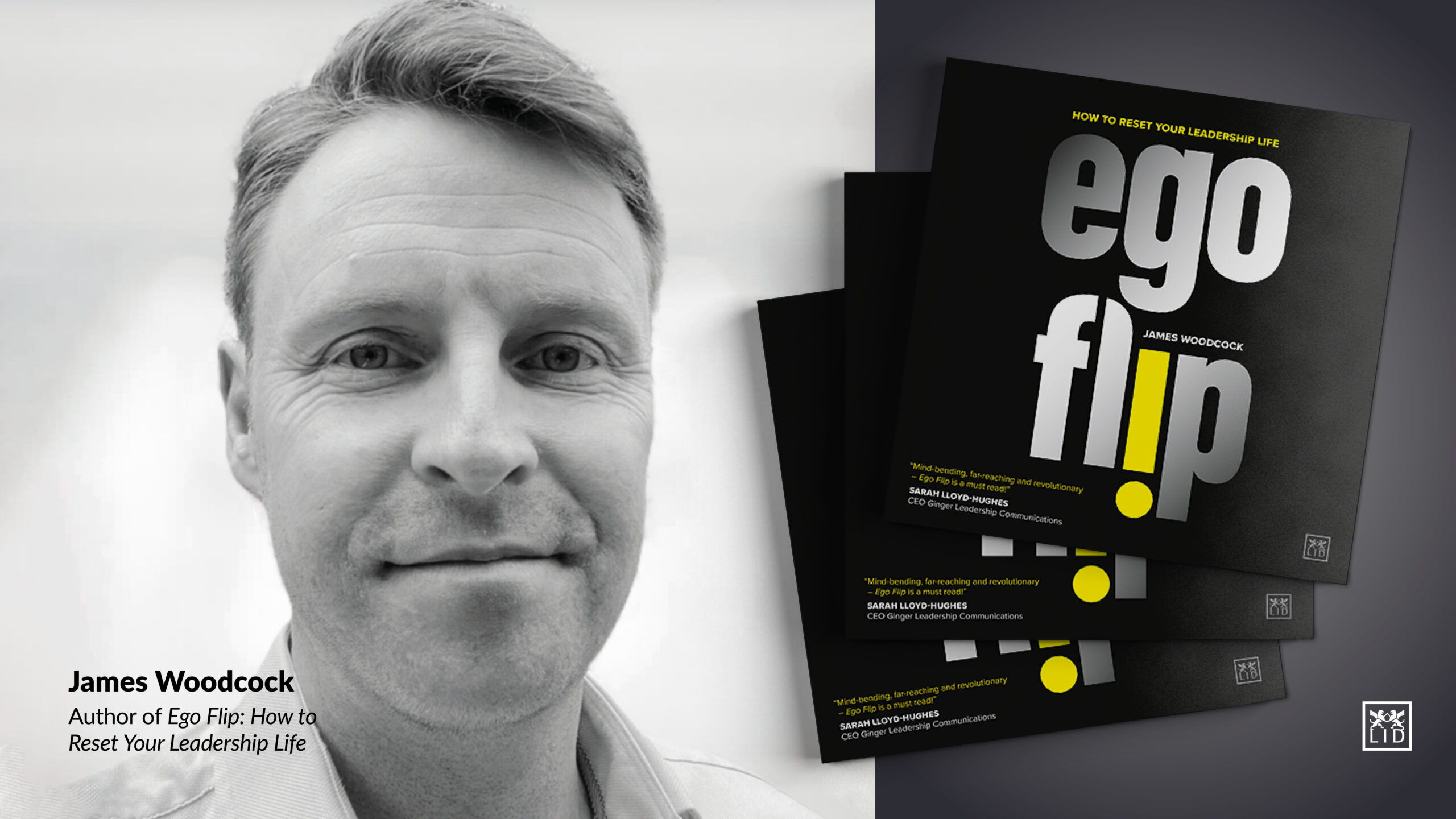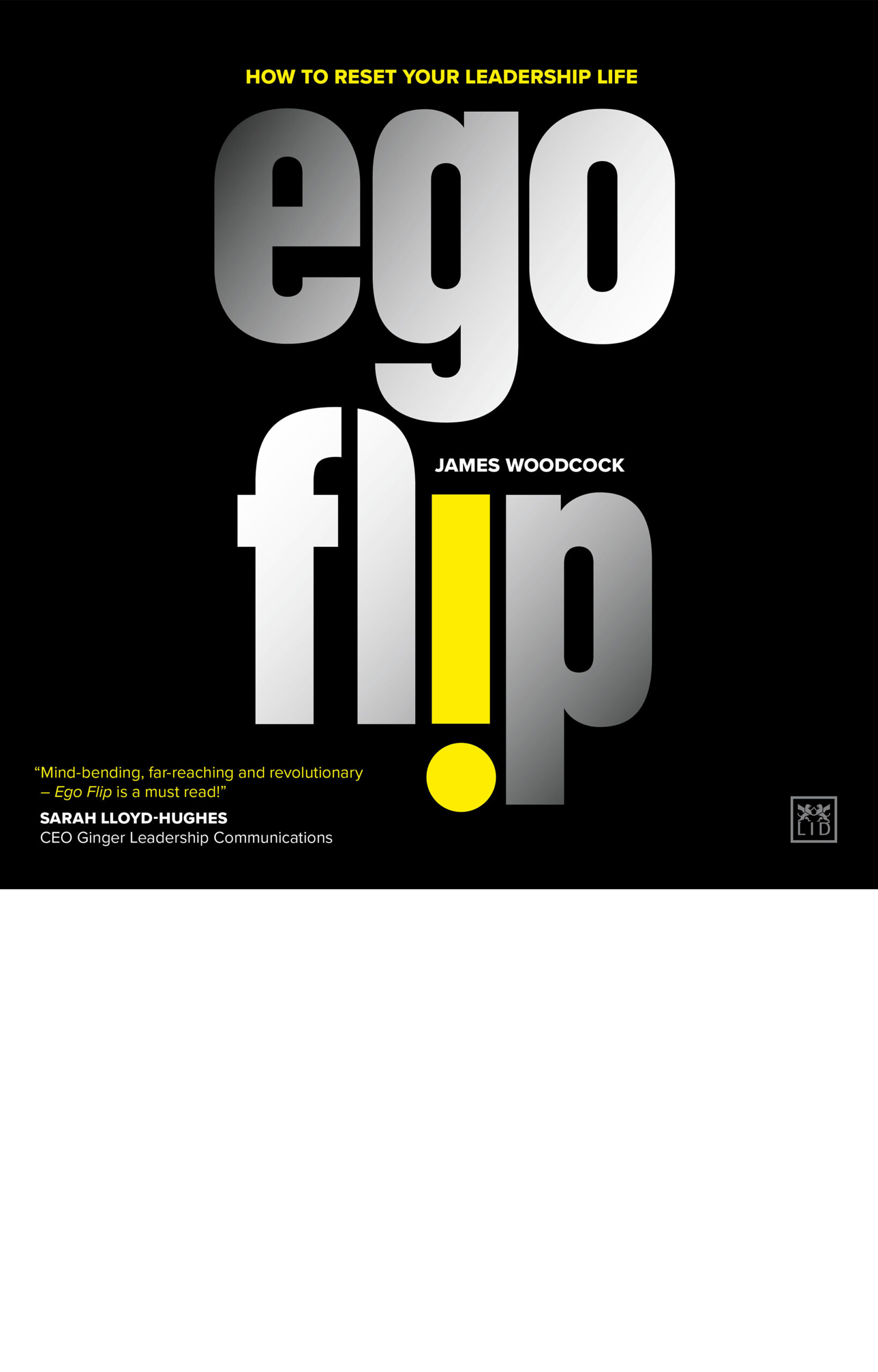|
The Paradox of Leadership with James Woodcock
The Paradox of Leadership

By Guest Contributor James Woodcock
Author of Ego Flip, James Woodcock, explains why personal experience is necessarily idiosyncratic and personal, and so cannot be validated by anyone other than the individual experiencing it.
There are three ways we can acquire knowledge: empirical observation, rational thought and introspection. Empirical observation is gained through the direct experience of perception – through our senses. We typically refer to the quintet of sight, smell, hearing, taste and touch; there are, of course, many more. This is knowing the world directly, and what we observe (unlike imagination) is that our observations are shared – we share the world. Second, through rational thought, we can conceptualize that which we have not or cannot perceive through our senses. We can formulate equations, deduce the Big Bang and write books. Third, if empiricism and rationality take our attention and interest toward our objective reality, introspection is holding up the mirror to the subject of our experience – to ourselves. It is from this that we derive our perspective.
There is plenty written in psychology about how the mind works. Introspection turns the question back on us, in the knowledge that everything we believe we know through perception and rational thought is filtered and conditioned through our knowledge of self. Perhaps the greatest acts of scientific endeavour have come when we’ve turned the camera back on ourselves. At the turn of the 20th century, historian Arthur Schlesinger Jr. described the Apollo 11 Moon landing as the century’s most significant human achievement – the moment when mankind’s greatest discovery became not the Moon, but the Earth, as for the first time we were able to turn and look back at it.
Herein lies the problem. The scientific method rejects subjective experience. The grounds for this are themselves rational – personal experience is necessarily idiosyncratic and personal, and so cannot be validated by anyone other than the individual experiencing it. Science is based on a shared understanding of a shared world of shared phenomena, which means that while the scientific method is consistent, it is incomplete. It can tell us how the world behaves, but not what it is. It describes the choreography without saying anything about the dance. The worldview is that through science we are inexorably inching toward an ultimate understanding of reality. Some of the greatest minds attest to this.
But to understand the painting, one must also study the painter. One is an outward expression, one inward. There is a discipline, a rigour to objective analysis. It is difficult to scrutinize and rationalize objective reality with clarity. And this has been rewarded. The technological advances we’ve made in the last century are staggering, as we have slowly revealed the order and organization that exists within the universe. Through psychology and cognitive science, our understanding of the mind of the leader has similarly been honed. Science has endowed mankind with increasing powers of deduction. Introspection has never been part of that toolset and never received this recognition. And the price for this explicit separation of scientist from the science – of self from world – is suffering.
On a macro scale, we see an increasing polarization of opinions and power, from libertarianism to capitalism. Culture and science are inextricably linked. The mindset of science has been imbued into our culture as we each focus on our little piece of the puzzle. Science is the ultimate arbiter of truth, through our conflation of what works to what is true. With our technology, we are burdened with huge responsibility.
The fundamental instrument of science is the finite mind. It is the eye that looks ever outward, through time and space, forever reaching. Throughout all the many pages of human history, we have sought the spaces that lie just beyond our understanding. We have looked between the cracks, within the subatomic and quantum realms, into spaces of infinite regression. We have stared into the void, through the boundlessness of space, and through technology, have extended our gaze. In 2018, through the Hubble Space Telescope, we discovered a star whose light took nine billion years to reach Earth, looking as it did when the universe was about 30% of its current age. Only four years later, in March 2022, the same telescope discovered Earendel, or morning star, whose light is believed to have taken 12.9 billion years to reach us – observed as it was only 900 million years after the birth of the universe, when the universe was only 6% of its current age.
As Oscar Wilde once said, “We are all in the gutter, but some of us are looking at the stars.”1 Through our searching, it seems inevitable that one day mankind will look up and discover through the light of some distant star the dawn of existence – the Big Bang – a moment for the universe to trade asceticism for vanity, to bear witness to itself. Perhaps at that point – when we have seen as far as it is possible to see, in distance and in time – we will notice too that not only can the birth of the universe only ever be known to us in a place that is here and a time that is now, but that this ultimate revelation of our origin will reveal nothing about who we are.
References:
- Wilde, O. (1892). Lady Windermere’s Fan. CreateSpace Independent Publishing Platform.
ABOUT THE AUTHOR
Suggested Reading
 This important book explores the paradox of self-reference that lies at the heart of leadership –ie, the story of ego. It examines the assumptions that have shaped the conventional view of leadership and offers a radical new paradigm and way to lead. The author explores the important role that ego plays within individual leaders. It looks at how ego has emerged as a new “meta ego”–the coordinated, collective expression of E.G.O or Evil Genius Organization–that is polarizing our world today. And through a new leadership manifesto (a set of 8 conscious imperatives that offer a new vision for transcending the ego), the author provides a pathway for leaders to rethink today’s conventions and what great leadership really means.
This important book explores the paradox of self-reference that lies at the heart of leadership –ie, the story of ego. It examines the assumptions that have shaped the conventional view of leadership and offers a radical new paradigm and way to lead. The author explores the important role that ego plays within individual leaders. It looks at how ego has emerged as a new “meta ego”–the coordinated, collective expression of E.G.O or Evil Genius Organization–that is polarizing our world today. And through a new leadership manifesto (a set of 8 conscious imperatives that offer a new vision for transcending the ego), the author provides a pathway for leaders to rethink today’s conventions and what great leadership really means.

